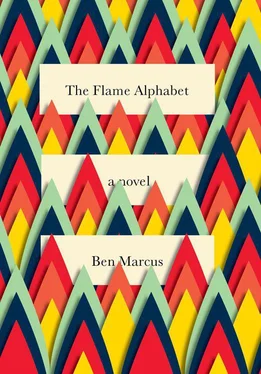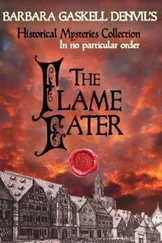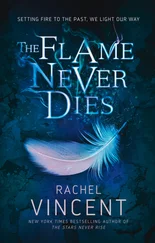“Sweetie,” I countered.
“See, like that,” she said. “There’s a lie right there. You think that a generic endearment will somehow show how you feel toward me, talk me out of how I actually feel . One word is going to do that, a word used for pets? How many people use that exact word to hide what they feel? It’s like you’re throwing up on me, actually. I feel like you just threw up on me.”
But in the years before these revelations and rules, before she was overwhelmed by insights she felt compelled to share with us, we’d had birthday parties. We staved off tantrums and avalanches of greed, accommodated in our home the children who seemed to function—if barely—as Esther’s friends. Along with these preteen colleagues we welcomed skulking parents, who would invariably let one of their babies—babies had not been invited, but there they were, there they always were—go off on a shelf-clearing campaign. Then a parent would quietly retreat, without the baby, to the off-limits master bathroom and take a toilet-wrecking shit that could never be flushed, only to emerge with the blissful look of someone whose own home is not being destroyed at this very moment, stepping half-apologetically, but really with relief, with genuinely visible relief and perhaps even a kind of lurid joy— this party is really fun! —over dumped cupcakes, grinding them further into the rug we should have pulled up before the party, but did not, because in the end we always failed to imagine how savage these people could become.
“ There you are,” the parent would scold the baby, as if it was the baby who had disappeared. The baby would crawl over, try to stand, hold up its arms in supplication to be carried, then topple over.
Depending on the baby, it would either sob, laugh, or be gorgeously oblivious to all mortal proceedings. One of those three behavioral paths.
“Come smell the shit I took,” the parents never said.
Instead the one-sided, rhetorical, patronizing dialogue would commence: “What did you do? Huh? What did you do?” the parent would interrogate the baby, picking it up and seeming to study it for evidence.
A theater of mock blame the parent should have been directing to the mirror.
“Why not ask someone who can actually answer you?” I wouldn’t say to them. “I’ll tell you exactly what your baby did. Would you really like to know? Can you handle a conversation with a real, live adult?”
I stood and stared at these people and they serially failed to read my mind.
Instead they would be locked in some kind of airborne mouth-tickling activity with the baby—holding it aloft and, to all appearances, trying to eat it—a baby who by now, so many years later, as a seven- or eight-year-old, I’d guess, was probably shouting that same parent into a corner, turning the parent pale, speaking with so much force that the parent was husking, shelling, dying in a house somewhere probably not so far away.
Had those parents built a locker beneath the stairs, as we did? Cut in a peephole, lined the little room with pillows? Had they shielded themselves from the speech of their offspring, effaced their hearing, or damaged the little ones themselves, stopped the reeking language at its source? Were they pumping white noise from the old slab radio, and did it not fully hide the child’s speech? Or perhaps the parents had already fled upstate. If they were smart. If they knew how to shut down their attachment apparatus and see their children for what they really, most essentially, were. Agents of such terrible mouth sounds that, relation or not, one hoped never to see them again.
On Esther’s final birthday in our house I went to the kitchen to get to work on the cake. There wasn’t much food left in the cupboard, just some pancake mix and a blend of baking powders I’d dumped into a bag. From the meaty, mineral smell I figured this would give a lift to the cake, at least if I got the batter down to room temperature and shocked it into a hot oven so it might have some spring.
For liquids I had an egg and some buttermilk, the custardy sludge from the bottom of the carton.
I could boil the buttermilk to kill off bacteria, then flash freeze it before dumping it into the batter. The egg, too, would need flame, because it was likely spoiled by now.
I broke it into a pan, stifled a gag, then whisked it over a simmer until it frothed up, sputtered, and grew clear again. Mostly it did not congeal. The hardened parts were easy to flick out. When the pan cooled I slid it into the freezer, went to work on sifting the powders.
For sugar I reduced the last of the orange juice until it thickened into a syrup, then whipped in a thread of honey. This would have to do, because I needed the last of the sugar for frosting. I liked to feather it on lightly, then comb it up while hardening it with the medical cold blower, as if the cake had a fright wig.
The frosting I colored silver with a bead of food-grade aluminum.
When she was younger, Esther preferred black frosting on Fez cakes, and she liked these cakes tethered by rope candy. Or, if not rope candy, then string, dipped in food coloring and pan-seared inside a thin jacket of sugar. When she was ten we’d cooked, cooled, and braided her own rope candy, but left it clear.
“Color is vulgar,” she said, quoting somebody.
Once we’d built trails with jelly beans, linking the baby cakes by candy cobblestone. Esther discovered that the jelly beans could be cut smaller and arranged so densely, it seemed the entire gathering of cakes rested on a pebbled surface.
Instead of a candle Esther would have me soak the perimeter of the cake with a squirt of kerosene, which flamed a perfect halo. When she was nine we strung a wick between two pieces of wire that bordered the cake. The laundry line, we called it. We lit the wick from both ends while singing “Happy Birthday” and watched it fall into the frosting. The two little balls of flame found each other in the center of the cake, burned out, and left a dark, charred circle.
“The burnt part is the best,” declared Esther. “I get the burnt part!”
Today I had no candle, no sweets. I did have a placebo smoke purse, which I’d billowed with safe vapors early in my experiments with Claire. The purse had cured—the plastic must have been tainted—yielding a reddish smoke inside.
I rolled an egg of wax, scooped it hollow, then linked it by drinking straw to the red smoke purse.
The smoke drained from the purse through the straw, filled the ball of wax, clouding the inside of it, turning it dark.
I removed the straw and quickly sealed the ball of wax. With a potato peeler I set about shaving the ball, thinning its surface to transparency. Then Esther could see the red smoke trapped inside. Perhaps she’d pierce the ball with her teeth, let the smoke release into her mouth.
A birthday smoke should be red. It’s the prettiest color for smoke.
When I was done I placed the wax ball on top of the cake. It sank slightly into the silver frosting, and that was that. It didn’t symbolize anything. This was the point. It was interesting to look at and I thought that Esther might have fun holding it up to the light, wondering how the dark red smoke got in there.
I found Claire beneath her linen shield and helped her into the hiding place under the stairs. Her body was light in my hands these days, but if I pulled the comforter she was resting on, I could drag her as on a sled from room to room, interrupted only by the thresholds, which offered a small obstacle Claire didn’t seem to mind.
I did not speak, did not tell her where we were going, but she’d want to see this, her daughter’s birthday. Together we could watch safely through the hole in the door our own little girl. It would be safe. Esther would come home and have some cake and we could watch her together.
Читать дальше











